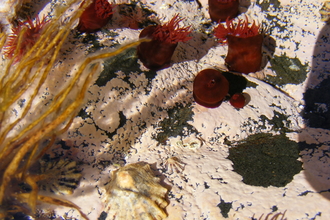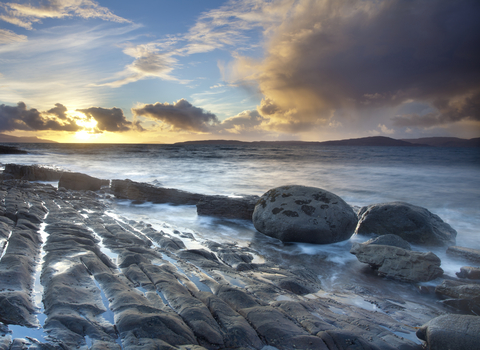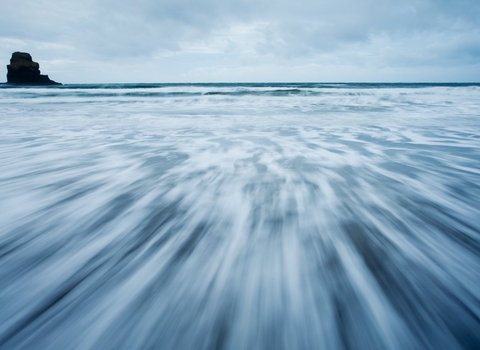Cold-water coral ©DeepLinks Project - Plymouth University, Oxford University, JNCC, BGS
Cold-water coral
Did you know that there are coral reefs in the UK? UK seas are home to some amazing cold-water corals that form reefs on the seabed over 400m deep.
Scientific name
Lophelia pertusaWhen to see
January to DecemberSpecies information
Category
Conservation status
Cold-Water Coral Reefs are a Priority Habitat under the UK Post-2010 Biodiversity Framework, listed in Annex I of the Habitats Directive (reefs) and on the OSPAR List of Threatened and/or Declining Species and Habitats.
Habitats
About
In the UK, cold-water coral reefs are found on the seabed off Scotland. Like their tropical counterparts, the reefs are a living organism built of thousands of individual polyps, anemone-like creatures that share a hard skeleton. These reefs develop over many hundreds of years, with live coral sitting on top of layers of now-empty skeleton, sand and mud. The polyps feed by extending their stinging tentacles into the water column to catch plankton, krill and other small crustaceans. Lophelia reefs can become large, highly branched colonies which create a very strong, long-lasting structure. The reef creates a habitat for other marine life, with many deep sea species depending on them for food and shelter.How to identify
A highly branching white coral that forms reefs on the deep seabed.Distribution
Found in deep waters off Scotland, particularly the Mingulay Reef Complex just 13km off the island of Mingulay.Did you know?
Lophelia reefs grow very slowly - only between 4 - 25mm per year! As such, the biggest reefs are likely to be thousands of years old with some recorded as growing in iceberg plough marks made during the last ice age.How people can help
Avoid eating slow growing deep-water fish like the Orange Roughy or choose products from fisheries classified as sustainable. Ensure you dispose of your litter correctly, recycling what you can. Join in on a beach clean and help reduce the tide of marine debris. Avoid toiletries containing microplastics, look out for Polyethylene and Polypropylene on the label. A number of Special Areas of Conservation have been proposed to protect these reefs. Learn more about UK Marine Protected Areas here.





